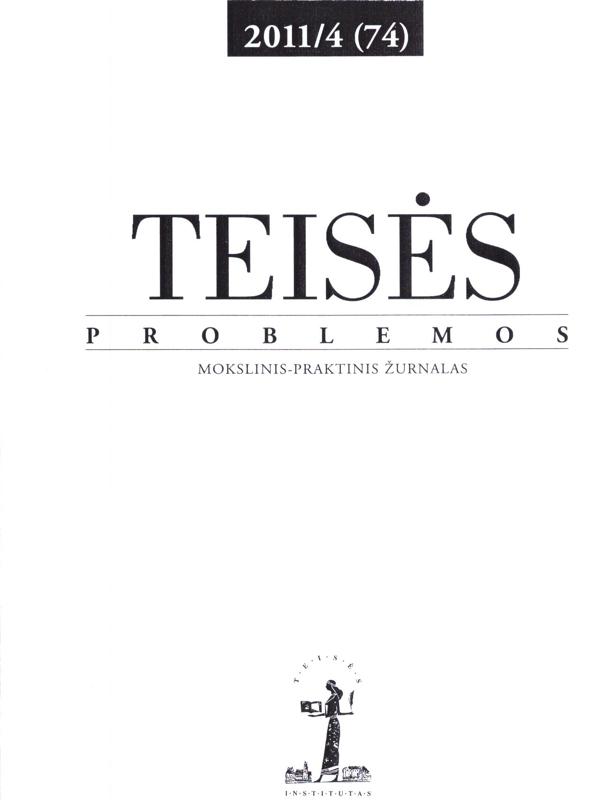Neturtinės žalos atlyginimas (?) baudžiamosiose bylose dėl gyvybės atėmimo ir sunkaus sveikatos sutrikdymo
Non-Pecuniary Damages in Criminal Cases for Personal Injuries and Death
Author(s): Skirmantas BikelisSubject(s): Law, Constitution, Jurisprudence, Criminal Law
Published by: Lietuvos teisės institutas
Summary/Abstract: The study focuses on the problem of fair levels of awards for personal injury and loss of relative‘s life. Though it seems that “objective” and universal definition of fair levels of awards does not exist, the attempt to formulate guidelines for motivation for decisions to award proper (fair) levels of damages as well as recommendations of referential levels was made. In order to fulfil the objectives of the study several consistent steps had to be taken. Firstly deep consideration of fundamentals – the purpose - of non-pecuniary damages had to be made. Secondly, on the basis of analysis of the purpose of non-pecuniary damages altogether with legal principles of equality and proportionality, main criteria of awards were defined. Finally approximate typical (standard) levels (starting points) for non-pecuniary damage have been set. It must be admitted that the latter issue is of inevitably conventional nature and it makes huge difficulties to make any argument-based convictions on this matter. Standard levels and criteria of fair awards together with some specific methodological issues of calculation, makes a set of “tools” for making judicial decisions on the non-pecuniary damages. It was concluded in this study that primary idea of non-pecuniary damages is neither restoration of victim to the pre-tort position nor compensation for suffered losses. It is impossible or not always possible to reach these goals. Non-pecuniary damages are aimed at expression of respect to victim’s dignity and providing solace to victim of a tort. There should be no formal restrictions regarding scope of relatives who would be entitled to claim for non-pecuniary damages. All persons who had had close relationship with a victim and therefore suffered hurt should be awarded non-pecuniary damages and those who had not maintained close relationship should not. The sum of damages should be defined individually for every plaintiff with regard to the hurt he/she had suffered and only in exceptional cases – with respect to the financial situation of the defendant. The courts should take the sum which is provided in the claim of plaintiff neither as starting point nor as the maximum level for award for non-pecuniary damage. Analysis of recent judicial practice in Lithuania revealed great diversity of levels of non-pecuniary damages for injury. Moreover the levels are usually relatively (too) low.
Journal: Teisės problemos
- Issue Year: 2011
- Issue No: 74 (4)
- Page Range: 5-51
- Page Count: 47
- Language: Lithuanian

